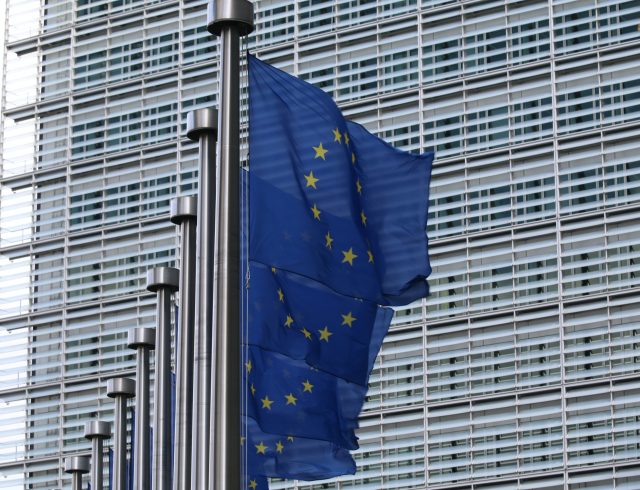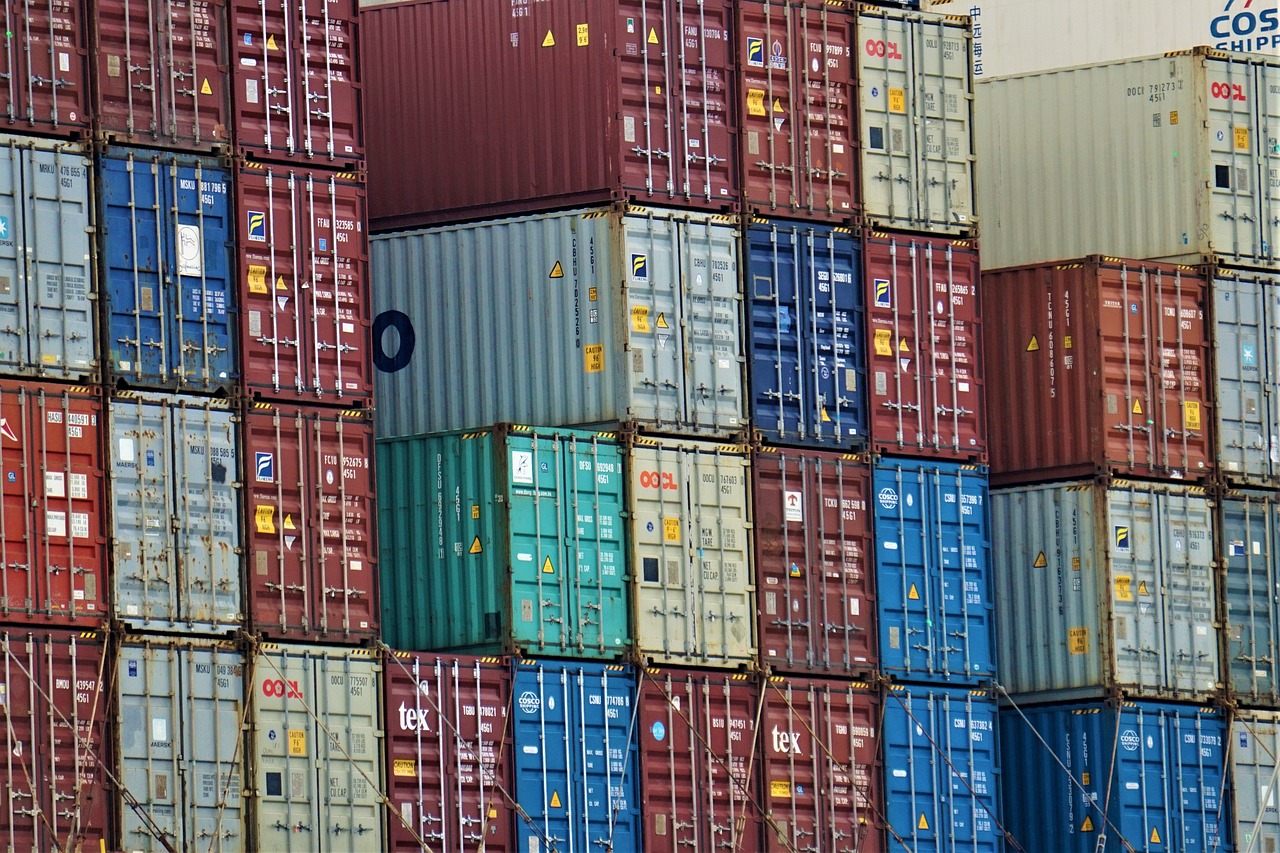
In the context of the increasing share of e-commerce in total trade flows and the problems linked to the inability of EU Member States to end the circumvention of international sanctions imposed on the Russian Federation, the European Commission proposes a new reform of the Customs Union.
At the heart of this reform is the establishment of a European Customs Authority and a customs data HUB managed by it. Its aim is to facilitate trade between countries and cut red tape – because the initiative is also intended to lead to better coordination of European public policies on trade. Last but not least, the reform is necessary because, although the EU is a free trade area, there are still processes that hamper the flow of goods between member states.
The idea of reforming the customs union has been discussed for more than a year, but concrete proposals from the European Commission were only presented in May this year. It remains to be seen what the position of the Member States will be towards this project and what will be the concrete form in which it will be implemented.
“It is, I would say, the most ambitious and comprehensive reform we have proposed since the start of the customs union in 1968,” said the commissioner for the economy, Paolo Gentiloni, at the time.
According to the official presentation of the draft, the reform of the customs union responds to the current pressures facing customs in the EU, including a massive increase in the volume of trade, especially e-commerce, the rapid multiplication of EU standards to be subject to border controls, and the evolving geopolitical situation, punctuated by crises. The reform will prepare the customs framework for a greener and more digital era and contribute to a more secure and competitive single market. The reform simplifies and streamlines customs reporting requirements for traders, for example by reducing the time needed to complete import procedures and providing a single EU interface, and by facilitating the re-use of data.
The proposed measures therefore aim to establish a new EU customs authority, but also a better thought-out approach to customs controls and a more modern approach to e-commerce. These measures are designed to simplify customs processes for business. By embracing digital transformation, the new regulatory framework aims to simplify cumbersome customs procedures, replacing traditional declarations with a smarter, data-driven approach to import surveillance. At the same time, customs authorities will have the tools and resources to assess and stop imports that pose real risks to the EU, its citizens and its economy.
How would the new Customs Authority and Data Hub work?
The new EU customs authority, which is at the heart of the reform, will provide and oversee a single EU-wide interface – the EU Customs Data Centre, which will virtually replace the existing customs IT infrastructure in Member States. According to a PwC analysis presented by ZF, with the new data centre, all Member States will have access to the same real-time data and will be able to pool information to respond more quickly and effectively to risks. They will also, with the support of the EU Customs Authority, carry out customs controls only where they deem necessary.

Companies bringing goods into the EU will be able to register all their product and supply chain information in this new single portal. It will compile the data provided by companies and, with the help of artificial intelligence, give authorities an overview of the movement of goods and supply chains. In addition, traders will be able to enter the same information into the portal to cover multiple shipments, saving time and money. Also, the most transparent and stable supply chains (“Trust & Check” traders) will move through the so-called “green lanes” and will be able to put their goods into circulation in the EU without any active customs intervention. At the same time, online platforms would become the key players in customs compliance for goods sold online in the EU. This represents a major change from the current customs system, says the source, which places responsibility on the individual consumer and carriers.
Online traders will be obliged to handle all customs formalities and will have to demonstrate that the goods they sell in the EU comply with all European import standards and legislation, assuring consumers that the duties on their goods have been paid and that they are safe according to EU standards.
The European Commission’s proposal would be phased in over the next 10-15 years. According to the EC vision, the Data Hub should open for e-commerce in 2028, and for other importers on a voluntary basis in 2032. From 2038, the Hub would become mandatory for all importers. From this date, the Data Hub will replace the 111 existing national IT systems from 2038 onwards. This would mean, according to European Commission estimates, savings of up to €2 billion a year in running costs. The Commission’s proposal will be subject to the EU’s ordinary legislative procedure and will therefore go through the EU Council and the European Parliament before adoption.
Romania claims to support reform. But it is abolishing e-commerce control
Romania, through the voice of Finance Minister Marcel Bolos, has already announced its support for the new customs reform.
“Romania supports the main objectives of the reform, mainly the establishment of the EU Customs Authority and the EU Customs Data Centre”, said Marcel Bolos, Minister of Finance, in the context of the last ECOFIN meeting.
Theoretically, along with the long-awaited accession to the Schengen area, participation in the new European institution could be an important step for Romania’s exports. Early last year, Romania re-established the Romanian Customs Authority, an institution that was abolished in 2013. More specifically, the management of customs activity was transferred from the ANAF, an institution under the Ministry of Finance, directly to the minister in charge (who appoints the director of the National Customs Authority). The newly created institution, although with almost the same number of employees as its 2013 predecessor – around 3000 – has two extra structures (directorates-general). However, the structure of the new authority is missing, as can be noted, a department of the Office of Electronic Commerce, established in 2016 due to the increased importance of this activity.
Dorel Fronea, former vice-president of ANAF and former director of the National Customs Authority (2012-2013 and 2016-2017), said at the time of the creation of the new structure that this measure creates “huge vulnerabilities regarding the AVR’s ability to fight fraud in this area”. On the other hand, he noted that the structure of the new entity includes a department with illegal powers.
“I stress that the dismantling of this office will lead to the discrediting of the AVR in the eyes of international partners on the one hand, while increasing fraud in the online sector on the other. Regarding the establishment of the Customs Investigation Service, I would like to mention that the Customs Authority is NOT entitled, by the Criminal Code and the Code of Criminal Procedure, to carry out investigation activities, this being an exclusive attribute of the structures of the Ministry of Interior”, said Dorel Florea.
The Economic and Financial Affairs Council (ECOFIN) meeting in Brussels in July was attended by a delegation from the Romanian Ministry of Finance led by Minister Marcel Bolos.
As expected, among the key topics on the ECOFIN agenda, such as structural reforms, fiscal policy, economic coordination or financial markets, was the EU Customs Reform. Certainly, the Customs Reform proposed by the EC can be considered the most ambitious project of its kind since the creation of the Customs Union in 1968.
“Romania supports the main objectives of the reform, mainly the establishment of the EU Customs Authority and the EU Customs Data Centre,” said Marcel Bolos, Minister of Finance on 18 July.
If the Reform is implemented, customs authorities will have the tools and resources to assess and stop imports that pose real risks to the EU, its citizens and its economy. European Commission officials explained that the project responds to the current pressures under which EU Customs operates.



 Subscribe
Subscribe